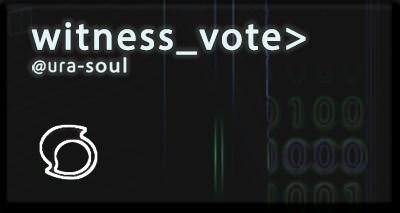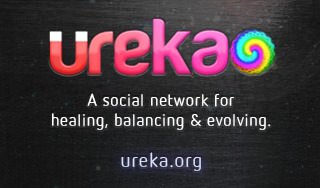Could it be that the balance and joy in life is being destroyed from within by just a few simple errors in logic used by large numbers of people? In this new series, exclusive to Steemit/Steem, I will look at some of these and how they permeate and shape society for the worse. We CAN fix them - understanding them deeply first is key.

The word 'Philosophy' is one that we hear from time to time used in various contexts, but when it comes to any kind of academic exploration of it most of us typically only get as far as hearing some names of 'great philosophers'. I have never studied philosophy academically and though I did have friends who studied it at a degree level, they seemed to only ever discuss political ideologies and since my own definition of the word philosophy was 'love of learning and life', they didn't demonstrate to me anything that matched up with my own way of thinking - life, I thought 'does not have much to do with politics'.
If we look at the etymological roots of the word, we see something like:
c. 1300, "knowledge, body of knowledge," from Old French filosofie "philosophy, knowledge" (12c., Modern French philosophie) and directly from Latin philosophia and from Greek philosophia "love of knowledge, pursuit of wisdom; systematic investigation," from philo- "loving" (see philo-) + sophia "knowledge, wisdom," from sophis "wise, learned;" of unknown origin.Meaning "system a person forms for conduct of life" is attested from 1771.
source: EtymOnline
So, philosophy is actually in it's pure and real form 'a love of wisdom' (and the associated acquisition and uncovering of wisdom in life). With this in mind, it is clear to me that the way that the word 'philosophy' is both used and abused in society is often hugely ignorant. I will explain.
"No Wisdom Here M' Lu'd"
I was once in court in Britain for a speeding 'violation' - it was alleged that I had 'broken the law' by driving my car at a speed higher than was being allowed by the government. When I stated my truth in the court regarding the conditions in life that existed while I was driving and while the evidence of the speeding was collected (a speeding camera) - I met the following response from 'The prosecutor':
"That is a philosophical point which is irrelevant in this court, we are only here to decide whether or not a law has been broken".
It was at this point which I realised fully that the inherited court system is heartless, delusional and dangerous for human society. Why? While it might be a fair position to state that the role of the court is to assess whether a rule has been broken or not, it is extremely offensive to the needs of humanity to claim that a point that originates in 'a love of wisdom and knowledge' is irrelevant to justice and integrity!
Claiming that wisdom is irrelevant is like claiming that 'lies are fine' or 'stupidity is no problem' and it effectively assumes that the system operated by 'law' is infallible and that individual insight is of no relevance. Yet this is what passes for logic in our court system and is part of why the outcome of so many court cases are unsatisfactory to most of those involved. When those involved in running the courts that are tasked with 'maintaining balance' in society are openly advocating for denial of wisdom, we have, at the very least, a broken court system.
The symbol of 'Lady Justice' that can be found around major courts is meant to represent an impartiality to finding who 'wins' in the court case (see below):

How is this 'justice' truly impartial if those involved are forced to deny aspects of one side of the scale because they 'rely on wisdom'? My suggestion is that at some point the blindfold ceased to mean that those running the courts are impartial and started meaning that they are actually in denial of reality and rely on 'plausible deniability' in a way that at the very least makes court systems dishonest and at the very worst makes them a grave threat to life on Earth.
The Death of Justice.
If we look at the etymology of 'Justice', again we can see the twists and turns that have been inserted into our thought process to take something useful and turn it into something impure and unfit for purpose:
mid-12c., "the exercise of authority in vindication of right by assigning reward or punishment;" also "quality of being fair and just; moral soundness and conformity to truth,"
source: EtymOnline
There are two conflicting definitions here which have an unresolvable gap in them.
The first definition states that some kind of 'authority' exists which upholds 'rights' by allotting rewards and punishments - so those involved in seeking balance within the system are inherently likely to be over-ridden by someone else in the process of finding balance in their given situation (This is also part of why 'judges' sit so much higher - physically - than others in a court room - to signify their 'power' and 'authority').
The second definition states that justice IS 'conformity to truth' and 'being fair and just' - but is it fair and 'just' to have someone else enforcing balance ONTO people at all? Is it fully true to say that we CAN force balance onto people and have it truly be real balance? No. Here's why:
Balance is defined accurately as :
No part or aspect is overpowering any other.
If you are on a see-saw and the aim is to stay balanced, if you lean more towards one end of the seesaw, your body weight on that side is essentially overpowering the weight on the other side of the seesaw and thus the see saw will tilt in the direction you are leaning and you may fall to that side. The only way to have a balanced seesaw is to stand in the middle and to ensure equal weight on both sides.

source: wikimedia
If we look again at the court situation, the idea is that an 'independent authority' (the court agents) will look at a case between two (or maybe more) entities and will attempt to assess where there is imbalance and will then take action to attempt to adjust the situation to create greater balance. The problem here is that there is an inherent overpowering of one side (or possibly both) in the court case, in the sense that those involved will typically have to go against their own will in order to conform to the demands of the court. If there is no over-riding of will then balance can be found but then why have a court case at all, since the people involved will reach a decision on their own - through their own will - anyway?
If the court case is between 'the government' and a person, then we have a hugely more complex problem since 'the government' is not a single person but is an artificial construct that is claimed to 'represent the people', but that in reality doesn't ever truly represent all of the people and literally cannot - Is it any wonder that the 'games' played in these 'courts' deny wisdom? How else could you carry on with such theatre that is based on such deeply false claims than by officially agreeing to deny wisdom?
If government is one of the entities in the court case then we literally have an entire political body (that defines it's own rules in the court to some extent) attempting to enforce balance onto someone it has never 'met' because it cannot meet them because it is only a concept based on the agreement of many others who are unlikely to be involved in the specific court case. This loss of specific attunement to the individuals in the case is unfair to all those involved since it forces individuals to conform and lose aspects of their individuality, rather than ensuring those involved choose to change through their own free will as a result of an increase of awareness and understanding. This loss of power only serves to then increase the power of the courts and by that action also increase the power of the individuals running the court and their personal friends and the government associated to it all.
In short, as long as the court system is being used to 'exercise authority' it is unjust and thus is unfit for purpose.
Balance Without Authority?
In the next posts in this series I will explore what authority is and how it is used to underpin governments, democratic systems and therefore also the judicial processes. I will look at the errors inherent within it, their effects and more importantly what might be an improvement to the design of the overall systems involved. As both a trained system architect and also someone acutely aware of the need for real balance, this kind of work is inevitable for me and is not intended to be anything more than an important step towards healing, balancing and evolving my home planet!
My intent is to introduce real philosophia into our consciousness such that we can evolve our systems in such a way that they can help us find real balance, instead of a dressed up and entirely fake form of balance.
Wishing you well,
Ura Soul

Vote @ura-soul for Steem Witness!

View My Witness Application Here

